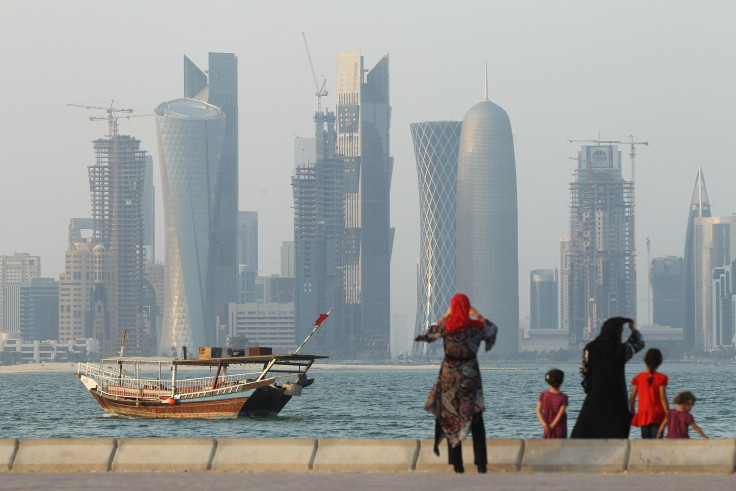Qatar 2022 World Cup: Could The US Or Australia Replace Qatar As The Host Nation?

The decision to award Qatar the 2022 World Cup has been riddled with controversy since the name of the desert nation with no discernable history of soccer and scorching summer temperatures was pulled out of the envelope four years ago. Claims of bribery and human rights abuses as well as disruptive plans to move the competition to winter have had many in the soccer community questioning Qatar’s suitability to host one of the world’s biggest sporting events. Now, allegations that Qatar is funding terrorism in the Middle East have brought further scrutiny.
There has been no indication so far that soccer’s governing body, FIFA, plans to move the competition. Although some in soccer governance, such as FIFA executive committee member Theo Zwanziger, have spoken out, none have the power to strip Qatar of its hosting rights. Ex-New York District Attorney Michael Garcia has delivered his report on alleged corruption over the bidding process, with the findings set to be announced in November. The decision, however, ultimately rests with FIFA President Sepp Blatter.
With pressure mounting and Blatter having been originally against the idea of Qatar hosting the quadrennial event, the possibility remains that the 2022 World Cup will be moved. Such a situation is not unprecedented. Colombia relinquished its right to host the 1986 World Cup, for economic reasons, four years before the event was set to get underway. Mexico, which hosted in 1970, stepped into the breach. If such a twist happens again, then there will likely be more time to prepare, meaning that several countries will be keen to take it off Qatar’s hands.
Here are the leading contenders:
United States
The U.S. would be the obvious first choice to step in, having finished second in the bidding process behind Qatar and having all the required infrastructure already in place, with a wealth of stadiums from which to choose. The country also has fairly recent experience of hosting the event, having impressed when handed the responsibility in 1994. Since then, soccer’s popularity has grown immeasurably stateside, making the tournament even more lucrative for FIFA, especially with the U.S. being the home of many of FIFA’s sponsorship partners. It is widely believed that Blatter voted for the U.S. to host the tournament in 2022 and holding it in North America would fit with the FIFA president’s plan of rotating it around the continents.
Australia
Australia was also unsuccessful bidders for 2022, although it came in last place with just a single vote. But being a country that has never hosted the sport’s biggest event and in a continent that has never done so either (although Australia now play in the Asian federation), it would appeal to FIFA’s remit of growing soccer around the globe. While Australia would have little problem meeting the stadium requirements at short notice, many of them would be venues for rugby and Australian Rules football. In the build-up to the original bid, there was some debate about whether the leagues would be prepared to sanction the use of their stadiums, given that the World Cup would take place concurrently with their seasons. Also counting against Australia is the fact that it has also faced allegations over corruption during the 2022 bid process.
Japan/South Korea
Having jointly hosted the tournament the first and last time it was in Asia, in 2002, Japan and South Korea made separate bids for 2022, with the countries finishing fourth and third in the voting, respectively. At short notice, each would be a candidate to take over the hosting responsibilities in 2022 and keep the tournament in Asia. It is possible they could again share the responsibility, although Blatter has said that he is no longer a fan of joint hosts.
Long shots
The fact that the World Cup will take place in Russia in 2018 means that it is highly unlikely that should Qatar be stripped of the responsibility, the hosting right in 2022 will be handed to a European nation. The likes of England and Germany would have little problem assuming the responsibility at short notice with their wealth of large soccer-specific venues and experience hosting major sporting events. Hosting it in China would keep the tournament in Asia and also take it to a new country, although, having not bid for it in the first place, Japan and South Korea may have something to say about their neighbors being awarded it over their heads. Argentina may also fancy itself as a contender, although it is thought by many that it will host the tournament jointly with Uruguay in 2030 to commemorate the 100th anniversary of the first World Cup being hosted in Montevideo.
© Copyright IBTimes 2024. All rights reserved.





















